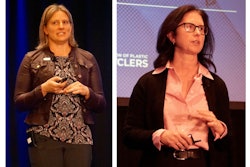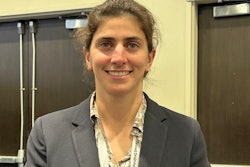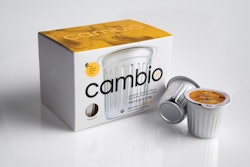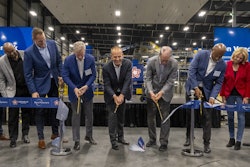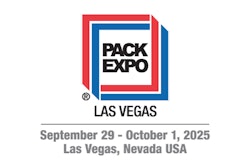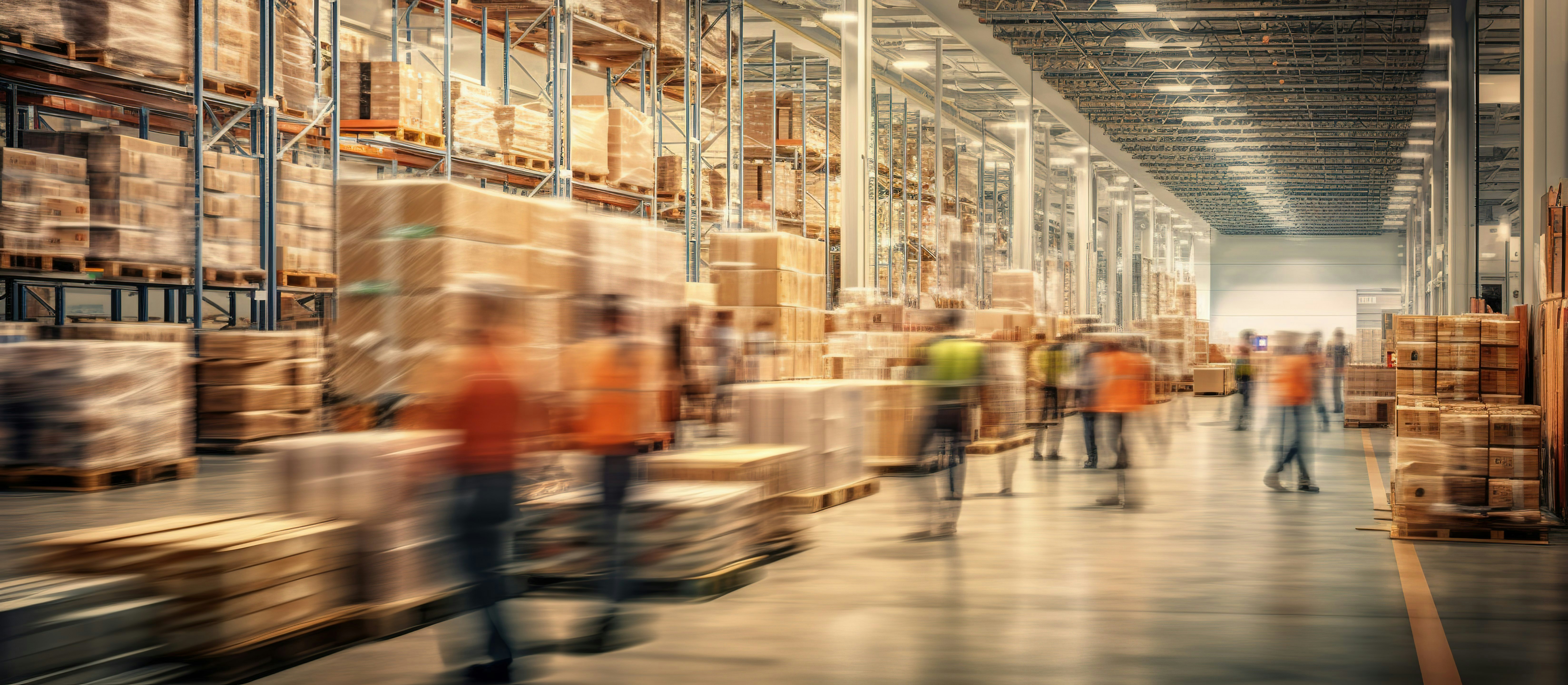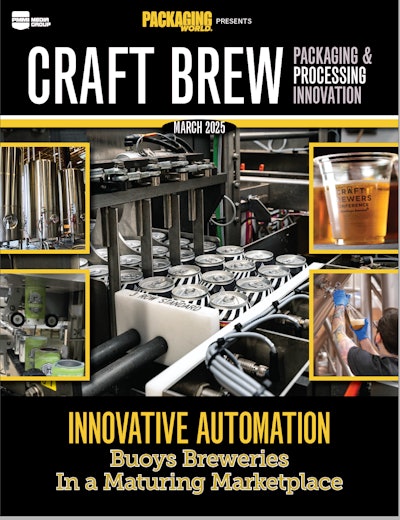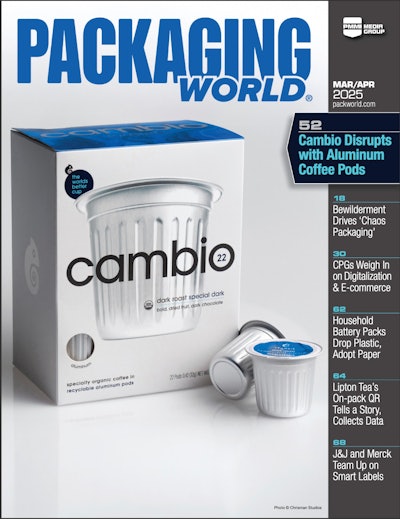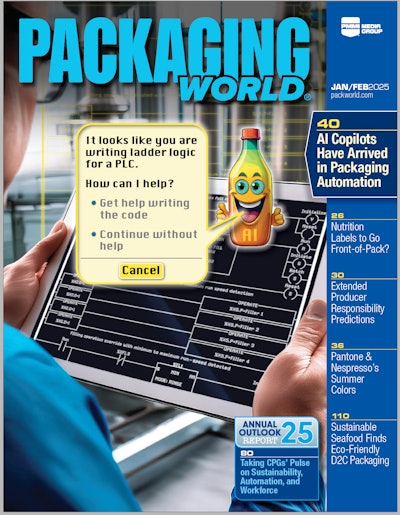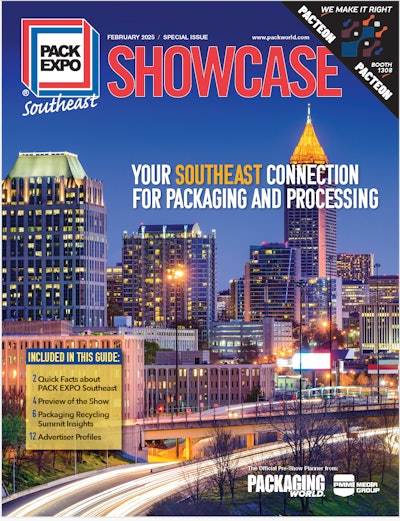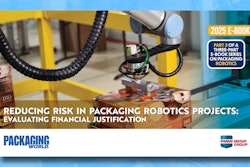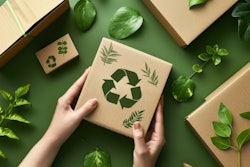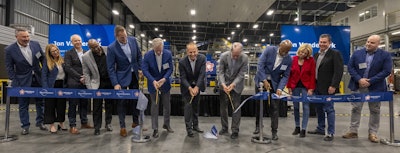
In March 2025, Republic Services, Inc. and Blue Polymers, LLC opened a co-located Polymer Center and a plastics recycling facility in Indianapolis. The 300,000-sq-ft complex is the first of its kind in the region, purpose-built to supply high-quality recycled PET flake and HDPE and PP resins for packaging, moving post-consumer materials beyond downcycling and back into the circular economy.
“The opening of the first Polymer Center–Blue Polymers complex is a significant milestone in advancing circularity for plastic packaging in Indiana and across the region,” says Jon Vander Ark, Republic Services president and CEO. “As a leader in environmental services, Republic is uniquely positioned to help meet customers’ demands for sustainable packaging and support Indianapolis’ vision to create a more resilient future.”
The Indianapolis facility is the second in Republic’s growing network of regional Polymer Centers, designed to serve as secondary plastic sortation hubs fed by baled materials from the company’s 80 material recovery facilities (MRFs) and third-party sources. The Polymer Center will process recycled plastics collected from homes and businesses in Indiana and nearby states. Feedstock includes PET water and soda bottles, HDPE milk jugs and detergent bottles, and PP to-go cups, margarine tubs, and more.
 | Read this related article on Republic Services Polymer Center-Blue Polymers network: “MRF’s Polymer Center Network to Expand Access to Recycled Plastic” |
The site is also home to the first operational plant for Blue Polymers, a joint venture between Republic and Ravago that further processes HDPE and PP into custom drop-in resins suitable for packaging and other applications.
Moving past downcycling
Until recently, much of the curbside-collected plastic in the U.S.—even when recycled—has found its way into applications like carpeting or construction pipe. Republic’s Polymer Centers aim to change that by producing food-grade rPET flake and highly sorted HDPE and PP streams that can be returned directly to consumer packaging.
“In its simplest description, the Polymer Center provides secondary processing of recycled plastics to produce higher-quality materials for different end markets,” says Pete Keller, VP of Recycling & Sustainability at Republic Services. “It’s about keeping these materials in the marketplace longer, turning them over more times, and meeting a need.”
 The Polymer Center handles bales of curbside plastic waste plastic from its nearby MRF facilities, providing secondary sorting as well as the production of PET flake.
The Polymer Center handles bales of curbside plastic waste plastic from its nearby MRF facilities, providing secondary sorting as well as the production of PET flake.
In a recent tour of the Indianapolis plant with Packaging World, Keller detailed the operation’s sophisticated system of optical sorters, color-separation, de-labelers, grinders, and hot-wash lines. Designed to handle more than 175 million pounds of plastics annually, the line takes bales of PET and polyolefins, and then purifies each stream.
PET bales—often only 60–65% pure—are converted into hot-wash rPET flake, with contamination from labels, caps, and rings removed. “We’re producing clear, hot-wash flake that enables the material to go back into packaging applications like beverage bottles and thermoforms,” says Keller, noting that most of the clear PET goes directly from the grinder through a caustic wash, hot rinse, thermal drying, and flake sorting before being shipped to suppliers for pelletizing or directly to preform manufacturers.
The sorting and washing system is designed to retain the cap and ring materials, which float in the wash tanks while PET sinks. These valuable byproducts—comprising a mix of HDPE and PP—are also recovered and processed.
Beyond PET: Polyolefins get a makeover
For HDPE and PP, the facility separates bales by color and material type before baling and transferring them to the adjacent Blue Polymers plant. There, resins are ground, washed, purified, and pelletized with the capability for custom compounding, including precise blends of recycled and virgin content.
“What we’re doing that’s unique here with the polyolefins is we’re producing not just a natural grade, but also white, red-orange-yellow [ROY], and blue-green grades of HDPE,” explains Keller. “Typically a mixed-color bale goes to a market that turns it into something that’s black or grey. Now it can go into something that’s red or orange. So that’s a different approach.”
 The Polymer Center’s advanced sorting capabilities enables the creation of red-orange-yellow (ROY) bales of HDPE.
The Polymer Center’s advanced sorting capabilities enables the creation of red-orange-yellow (ROY) bales of HDPE.
This level of color and resin specificity opens doors for brand owners looking to increase PCR content without compromising aesthetics or performance. The ability to provide FDA food-grade HDPE and PP also expands options for primary packaging applications.
Demand-driven development
The Indianapolis campus is a tangible response to growing demand for high-quality recycled content driven in part by extended producer responsibility (EPR) regulations and corporate sustainability goals. “Most consumer packaged goods companies have pretty ambitious packaging goals as it relates to recycled content,” said Keller. “We think we’re addressing a real need in the marketplace.”
Notably, some major beverage brands have already committed to sourcing rPET flake from Republic’s Las Vegas Polymer Center, which opened in late 2023. The company’s next Polymer Center–Blue Polymers complex is under development in the Northeastern U.S., with another Blue Polymers plant planned for Buckeye, Ariz.
The Indianapolis site itself benefits from local and state support, including grants, tax credits, and investment incentives tied to job creation and sustainability initiatives. The complex is expected to create approximately 125 permanent, high-skilled jobs.
A system built for circularity
With a hub-and-spoke model, Republic Services is optimizing freight lanes, processing economics, and ultimately environmental impact. “This is about enabling greater circularity,” Keller emphasized. “If you can’t get recycling content into packaging, then maybe that product needs to be in a different type of package. And that’s why we’re here—to make sure that doesn’t happen.”
The Indianapolis site marks a continuation of Republic Services’ investment in infrastructure that supports the recycling and processing of rigid plastics. Its operational model emphasizes efficiency in material handling and resin quality, aligning with industry needs for reliable sources of recycled content. PW




